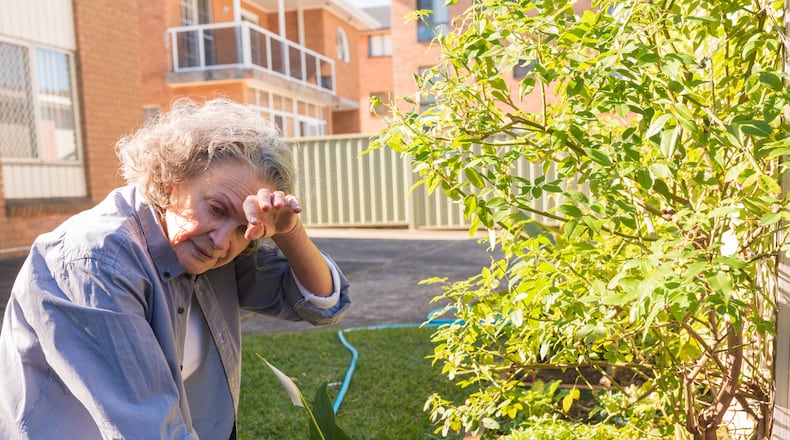According to a PBS report, a record number of more than 2,300 heat-related deaths occurred in 2023, which was the highest number in 45 years. Harvard Medicine estimates that more than 80 percent of heat-related deaths are among people ages 60 years and older.
The National Institute on Aging website notes that hot weather is stressful for senior citizens as their bodies struggle to regular temperature. Older adults do not sweat as much as their younger counterparts and their bodies don’t release heat as efficiently.
Medical conditions and medications can also affect a person’s physical response to hot days. Some people experience heat syncope (dizziness) or heat cramps when they are active in hot weather. Some medications can also result in people burning more easily during sun exposure.
Heat exhaustion
Heat exhaustion is a less severe form of heat illness, and it occurs when a person has prolonged exposure to high temperatures or physical activity. Heat exhaustion occurs because the body is having trouble regulating its temperature. Symptoms can include excessive sweating, muscle cramps, nausea or vomiting, weakness or dizziness, fatigue, headache or a rapid, weak pulse.
To treat heat exhaustion, a person should stop all activity, move to a cooler or shaded place to rest and drink a sports drink or cool water. If left untreated heat exhaustion can lead to heat stroke.
Heat stroke
Heat stroke is the most severe heat illness. Heat stroke occurs when a person’s internal temperature reaches 104F or higher because the body cannot cool itself through sweating. Symptoms include disorientation, headache, seizures, rapid pulse or rapid breathing, confusion, change in behavior or fainting. Skin can feel cool and dry to the touch due to lack of sweating. Skin can also turn flushed as the person’s body temperature rises.
A heat stroke is considered a medical emergency, and immediate intervention is needed to avoid organ damage or death. Call 911 and move the person to a cool place to remove extra clothing. Use cool cloths, a cool bath, ice packs or a misting fan to lower temperature. According to the Mayo Clinic, the brain, heart and kidneys can be affected by a heat stroke, and other organs could be permanently damaged from swelling.
It is best to limit outdoor activities to early morning or late evening, and stay inside in the air-conditioning during the hottest hours of the day (typically 3 to 6 p.m.). Seniors who live in a home without air conditioning can visit indoor spaces, such as libraries, movie theaters, restaurants or senior centers.
If a person does choose to be outside on hot days, sunscreen is a must to protect yourself from burns. Increase fluid intake (do not wait until thirsty), while limiting alcohol and caffeine. Experts recommend staying in the shade, wearing lightweight, lightly colored and loose-fitting clothing. Fans, wide brimmed hats, and a damp cloth draped around the neck can also help seniors keep cool.
About the Author

